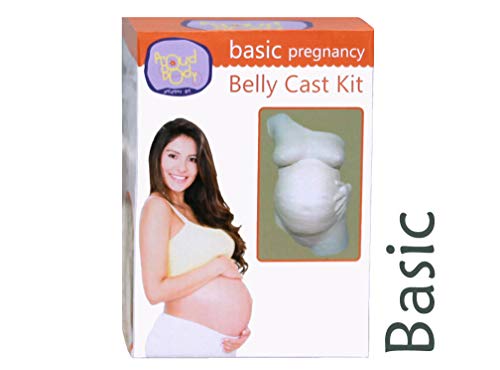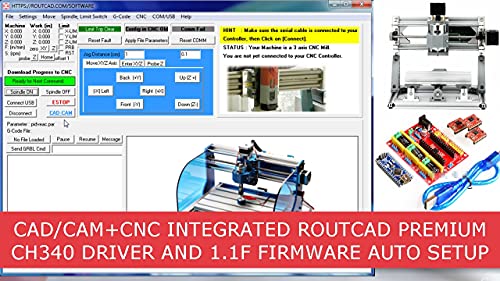In full size practice you can start and run a diesel engine by spaying brake cleaner into the inlet manifold. The speed of the engine very much depends on the amount sprayed in. I wonder if such a fuel could be used in model practice through a carburator or similar, using compression ignition? Has anyone tried this?
You are using an out of date browser. It may not display this or other websites correctly.
You should upgrade or use an alternative browser.
You should upgrade or use an alternative browser.
Brake cleaner as a fuel
- Thread starter Chaffe
- Start date

Help Support Home Model Engine Machinist Forum:
This site may earn a commission from merchant affiliate
links, including eBay, Amazon, and others.
Philjoe5
Well-Known Member
- Joined
- Jul 12, 2007
- Messages
- 1,727
- Reaction score
- 321
Some brake cleaners contain chlorinated petroleum products. Burning them under IC combustion conditions can produce truly nasty chemicals. I would stay away from them unless you know what's in the product. See:
http://en.wikipedia.org/wiki/Polychlorinated_dibenzodioxins
Cheers,
Phil
http://en.wikipedia.org/wiki/Polychlorinated_dibenzodioxins
Cheers,
Phil
Brake cleaners *used* to be non-flammable so I looked one (Gunk brand) up and found that they've been reformulated with "2-Propanone", AKA acetone. Acetone is quite flammable so I guess they've given up on those that might be inclined to use it in this formulation (it also means that you can get all the benefit of the spray brake cleaner using a small HVLP gun and cheap-ass acetone from the paint supply store).
That being said I suspect that you might get more consistent results from a lighter fraction - light naptha or the like. I'd be tempted to play with propane since it's concentration would be easy to adjust.
That being said I suspect that you might get more consistent results from a lighter fraction - light naptha or the like. I'd be tempted to play with propane since it's concentration would be easy to adjust.
- Joined
- Dec 14, 2007
- Messages
- 1,181
- Reaction score
- 31
You can start a diesel engine by spraying any number of somewhat flammable liquids/vapors into the intake. Lots of stuff burns at a compression ratio of 18:1. It's different when you get into the normal realm of model engines. At a comp ratio of 6:1 or less, fewer things will want to burn.
All that is kind of meaningless though, when you consider brake cleaner at $3 per 12 oz can is about 10X more expensive than plain old gasoline or naphtha in the form of Coleman lantern fuel. What would be the benefit of using brake cleaner? It won't work as well as a proper fuel, if it works at all, and it's more expensive by a factor of 10.
Just as a matter of info, I bought some CRC brake cleaner a few day ago. It says non-flammable on the can.
All that is kind of meaningless though, when you consider brake cleaner at $3 per 12 oz can is about 10X more expensive than plain old gasoline or naphtha in the form of Coleman lantern fuel. What would be the benefit of using brake cleaner? It won't work as well as a proper fuel, if it works at all, and it's more expensive by a factor of 10.
Just as a matter of info, I bought some CRC brake cleaner a few day ago. It says non-flammable on the can.

$190.00
$254.99
Genmitsu CNC 3018-PRO Router Kit GRBL Control 3 Axis Plastic Acrylic PCB PVC Wood Carving Milling Engraving Machine, XYZ Working Area 300x180x45mm
SainSmart Official

$649.00
$699.00
FoxAlien Masuter Pro CNC Router Machine, Upgraded 3-Axis Engraving All-Metal Milling Machine for Wood Acrylic MDF Nylon Carving Cutting
FoxAlien Official

$15.99 ($0.05 / Count)
$18.99 ($0.06 / Count)
HongWay 300pcs 2 Inches Sanding Discs Pad Kit for Drill Sanding Grinder Rotary Tools with Backer Plate Shank and Soft Foam Buffering Pad, Sandpapers Includes 60-3000 Grit
HongWay US

$99.99
$109.99
AmTech300 - Boiler Treatment Professional Strength (Rust Inhibitor For Outdoor Wood Boilers)
Alternative Heating & Supplies

$94.99
$109.99
AHS Woodmaster 4400 Maintenance Kit for Outdoor Wood Boiler Treatment
Alternative Heating & Supplies

$188.98
TM NEXDYNAMI RE41157 Water Pump Compatible With/Replacement For/John Deere 6200 7400 6300 6600 6500 6400 7220 7600 7200 RE41157
VIVID MARKET CORPORATION

$59.99
Sunnytech Hot Air Stirling Engine Motor Model Educational Toy Electricity Generator Colorful LED (SC001)
stirlingtechonline

$403.09
DM14 Engine Build Kit, Metal Engine Build Model Great Metal Material for Engineer for Factory
Easoger Official

$104.99
Sunnytech Hot Air Stirling Engine Motor Steam Heat Education Model Toy Kit M16-CF
stirlingtechonline

$13.99
$24.95
Building an Affordable House: Trade Secrets to High-Value, Low-Cost Construction
Amazon.com

$39.99
$49.99
Sunnytech Low Temperature Stirling Engine Motor Steam Heat Education Model Toy Kit For mechanical skills (LT001)
stirlingtechonline
I dont think price comes into it when you are burning it in a model, its not going to use much. My thoughts were that you could make a model with 18:1 compression ratio and use compression ignition instead of spark, obviously there are other fuels out there but i have brake cleaner in plentiful supply, i understand its probably not good for you to braethe the fumes, but then what exhaust fumes are good for you?Deanofid said:You can start a diesel engine by spraying any number of somewhat flammable liquids/vapors into the intake. Lots of stuff burns at a compression ratio of 18:1. It's different when you get into the normal realm of model engines. At a comp ratio of 6:1 or less, fewer things will want to burn.
All that is kind of meaningless though, when you consider brake cleaner at $3 per 12 oz can is about 10X more expensive than plain old gasoline or naphtha in the form of Coleman lantern fuel. What would be the benefit of using brake cleaner? It won't work as well as a proper fuel, if it works at all, and it's more expensive by a factor of 10.
Just as a matter of info, I bought some CRC brake cleaner a few day ago. It says non-flammable on the can.
The "propane" aspect cant be the case here as the stuff i use is liquid form and used in a "pump up" type spray can. Very eager to evapourate, i suspect as mentioned some sort of ethlyketone or similar, as for being "non flamable" Deanofid, The stuff im using is probably amongst the most flamable in the garage! Soo much so i dont even light the fire with it!Stan said:I expect that brake cleaner includes some petroleum based solvents since it removes oily residue so well but the main ingredient that affects the diesel engine is the propane gas used as a propellant.
My thoughts on this subject were that of chucks compression engine (hot tube) and similar, who says that it has to run on diesel or parrafin? when this stuff may work well? food for thought
Deanofid said:Just as a matter of info, I bought some CRC brake cleaner a few day ago. It says non-flammable on the can.
For chuckles (and in a desperate effort at avoiding real work) I checked - looks like the CRC folks have a couple of different formulations for brake cleaner. The one you got was likely the one with perchloroethylene (AKA tetrachloroethylene, PERC, etc.) at 70-80%. They also have one (formulated for California?) that's mostly acetone and tolulene.
Getting flammable brake cleaner anywhere away from California may be the luck of the draw, and you gotta check the label. Even with that it's going to be some mix of stuff. I think you're going to be better off using a can of the "right" stuff, if you want to spray it just use one of those sprayers you pressurize with shop air.
While I've tried a bunch of things for fuels in model airplane engines I stay well away from anything that isn't really intended to be burned. Acetone is horrid stuff.
Camp fuel, alcohol, E85, gasoline, or kerosene, charcoal lighter fluid, lamp oil, and ether in the case of model diesel.
For diesel, kerosene alone does just fine once up to temperature.
Camp fuel, alcohol, E85, gasoline, or kerosene, charcoal lighter fluid, lamp oil, and ether in the case of model diesel.
For diesel, kerosene alone does just fine once up to temperature.
Philjoe5
Well-Known Member
- Joined
- Jul 12, 2007
- Messages
- 1,727
- Reaction score
- 321
Chaffe,
Try this link:
http://www.toolbank.com/cossh/0155.PDF
Contains 2 types of ethers, 3 hydrocarbons - shouldn't produce anything that gasoline does when burned in an engine. But, some of the ingredients may do bad things to any plastic tubing or seals you have in the engine.
Phil
Try this link:
http://www.toolbank.com/cossh/0155.PDF
Contains 2 types of ethers, 3 hydrocarbons - shouldn't produce anything that gasoline does when burned in an engine. But, some of the ingredients may do bad things to any plastic tubing or seals you have in the engine.
Phil
Similar threads
- Replies
- 11
- Views
- 2K




















































